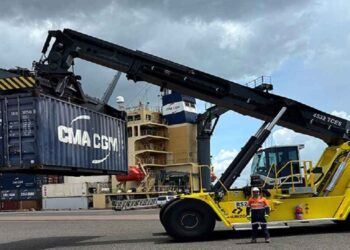From airport checkpoints to counter terrorism to future medical imaging devices, the use of x-ray 3D imaging is the cornerstone of many of the applications that are critical to security and medical markets. Notably, airport checkpoint technology is facing an immediate challenge, with global passenger numbers on track to double by 2030. The evolving technology requirement for checkpoints is to process far more passengers per hour than the current industry average of 200. Faster screening with improved threat detection are the holy grail.
Similarly, compact and agile systems with 3D imaging are major technology advancements the medical market can use to deliver improved patient diagnosis and outcomes. To anticipate these needs, Micro-X, the global leader in cold-cathode x-ray technology, and Thales, leader in security and medical imaging, have combined forces in a multi-faceted collaboration to develop X-ray imaging systems based on X-ray sources that use Carbon NanoTubes (CNT) cathodes at their heart. The Premier of South Australia, The Honourable Steven Marshall MP, today hosted a reception in Parliament House to mark the occasion.
CNT is a crystalline variety of carbon with properties that improve the efficiency of x-ray imaging by orders of magnitude. By combining this revolutionary technology, developed by Micro-X with Thales’s 60 years’ experience in x-ray devices, the two organisations will initially collaborate on the design of novel, miniaturized X-ray sources. These sources will be produced by Thales and manufactured in Moirans, France, and will power both Thales and Micro-X’s future roadmap of innovative x-ray products for medical and security markets.
In the second part of the alliance both companies will address global sales and support of Micro-X’s Mobile Backscatter Imager (MBI) for assessment of Improvised Explosive Devices (IEDs). Design and development is already underway in Adelaide following very positive enduser feedback of the operational concept and the imaging performance demonstration conducted for the Australian Defence Force’s Counter-IED Task Force. Under this collaboration Thales, an established global supplier of defence and security technology systems, will cross-sell the MBI product manufactured in Adelaide.
Thanks to its compactness and imaging sensitivity compared to traditional technologies, they are perfectly positioned to address future regulations being developed and enacted by governments, to enable security forces to detect threats more rapidly. CNT X-ray also brings us closer to a future airport checkpoint system that no longer requires passengers to queue up, open bags and remove electronics devices and liquids. Instead, passengers will simply set their closed bag on the scanner and walk through another scanner.
By coupling carbon nanotubes cathodes with backscattering image processing algorithm and Artificial Intelligence to more efficiently identify suspicious items, the new equipment will achieve a level of miniaturization that will lead to significant space reduction. This can in turn free valuable terminal real estate currently allocated to security checks, for commercial use and improved passenger flow. The resulting efficiency will allow airport authorities to re-organize terminals, to drive up commercial value thus open more revenue streams.

































